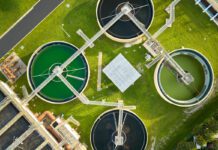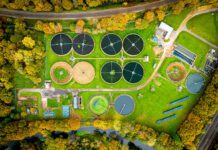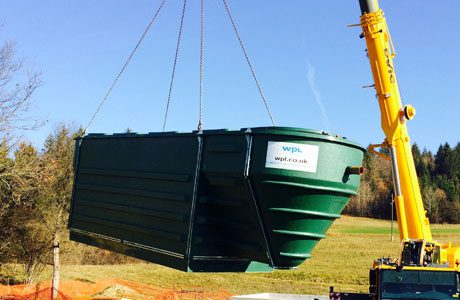
Mains sewage treatment is being brought to three villages in Slovenia for the first time with the help of a packaged treatment plant manufactured in the UK. Hampshire-based WPL has been selected to produce the custom-made plant for the villages of Zdenska Vas, Mala Vas and Cesta in an EU-funded project.
Three High Performance Aerated Filter (HiPAF) units operating as a single treatment system at Zdenska Vas will be connected to a new mains sewerage system, ending the reliance of the villagers on septic tanks.
Central European Sales Manager Frantisek Mikulinec of WPL said: “In countries such as Slovenia and the Czech Republic there are thousands of small remote villages and many are not connected to a sewerage system. In small villages you can have very big fluctuation in flows throughout the day when people go to work. Also temperatures in winter can fall to as low as -15degC.
“The advantage of the HiPAF is that it can accommodate fluctuations in flow and temperature variations because submerged aerated filter (SAF) systems like the HiPAF adapt to loading changes more quickly than activated sludge flocs. Intensive nitrification can occur even when the temperature is low due to biofilm thickness.”
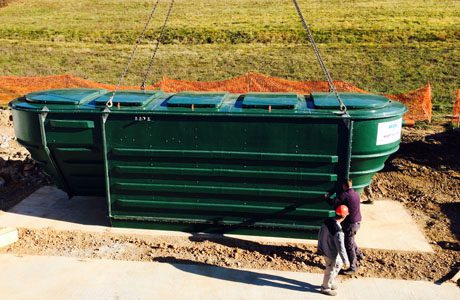
European funding
Approximately 70 per cent of the funding for the project comes from the European Union Cohesion Fund – which supports infrastructure projects. A further 30 per cent comes from the local government, which appoints the designer for the new sewerage systems.
Work on the Zdenska Vas and Mala Vas projects has been completed with work in Cesta expected to take place in early March 2016.
Mikulinec said strong local connections helped the UK company secure the contract as well as the proven reliability of the core process. WPL has more than 20 years experience of manufacturing packaged plants. The company specialises in custom-made plants which can treat to the highest environmental standards, including sub-1mg per litre ammoniacal nitrogen and total nitrogen where required.
“The great advantage of the WPL HiPAF system is that it is a very robust and reliable process, which is what you need in these smaller villages.
“WPL has a very close working relationship with Grosupje, a Slovenian water utility and the contractor for this job. In Slovenia WPL works with distributor F3M Levstek, which is very well known and well respected company.”
Low maintenance
Each HiPAF unit has a treatment capacity of 235 population equivalent. They will be fitted below ground in order to withstand the freezing temperatures in winter. A shared walk-in kiosk will house blowers, manifolds and control panels for all three plants.
The HiPAF system uses a combination of fixed-film and biomass reactions and is capable of achieving even the most stringent environmental standards. The tanks are fitted with a forward-feed system which lowers the level inside the tank during periods of low flow in order to create a balancing volume during surges.
WPL packaged plants are designed to be easy to maintain and if necessary each diffuser can be removed for maintenance without the need to shut down the plant.
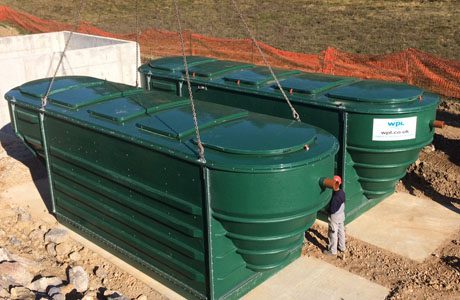
Ongoing research
In order to maximise efficiency once the systems are fully operational WPL will compare influent, effluent and energy use from each village in an ongoing research project headed by sales manager Frantisek Mikulinec. The findings will then be used to adjust the process to make sure each unit is working as smoothly as possible.
He said: “The challenge with these sort of projects is to ensure we come up with exactly what has been specified by the designer of the new sewerage system appointed by the local authority. Because WPL specialises in custom-made packaged plants we are able to adapt our basic design to ensure it meets the requirements of the client.
“The great advantage of the SAF systems designed by WPL is that they are extremely robust and reliable, are based on tried and tested technology and require a minimum of maintenance.”





